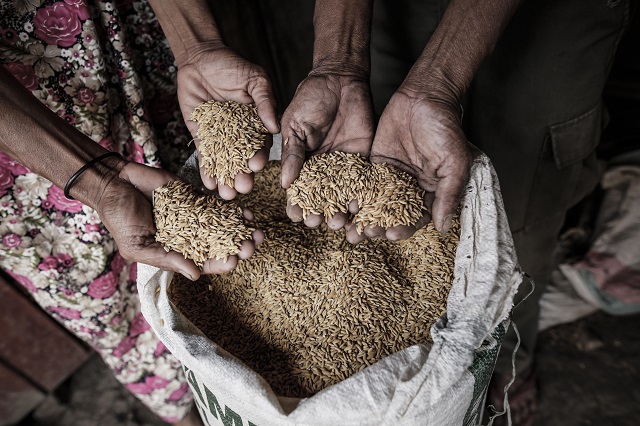The Philippines
June 10, 2020

Philippine Rice Research Institute of the Department of Agriculture (DA- PhilRice) urges farmers to use high-quality seeds of recommended rice varieties to ensure good yield this wet season when field pests and diseases are usually prevalent.
Dr. Oliver Manangkil, head of the Plant Breeding and Biotechnology Division, said that crops from high-quality seeds grow, mature, and ripen uniformly; resulting in a 10% or more yield increase.
He also said that high-quality rice seeds have at least 85% germination rate and fewer weed seeds. High-quality seeds, he said, are relatively pure, full and uniform in size, and free from visible seed-borne diseases.
“Seeds play a huge role in achieving good harvest and income, as they are basically the foundation of any crop. Using high-quality seeds is one of the most fundamental strategies for farmers to be competitive,” Manangkil emphasized.
To ensure seed quality, Manangkil encouraged farmers to buy seeds from accredited seed growers, with an attached valid tag from the Bureau of Plant Industry- National Seed Quality Control Services.
If there are no accredited seed growers in the area, the plant breeder said farmers can also opt to source seeds from fellow farmers whose fields have uniform crop growth. Farmers can also produce their own high-quality seeds by following proper procedures in rouging and removing off-types.
Manangkil also advised farmers to choose varieties that are well-adapted in the locality for these are resistant to pests and diseases such as NSIC Rc 222, 216, and 160, which are included in the country’s top three recommended varieties by the Department of Agriculture.
NSIC Rc 222, which matures in 106-114 days and yields 5.7-6.1t/ha, has intermediate resistance against blast, bacterial leaf blight (BLB), and tungro. It is also moderately resistant against brown planthoppers (BPH) and green leafhoppers (GLH).
With a maximum yield of 9.3-9.7t/ha and maturity days of 104-112 days, NSIC Rc 216 has intermediate reaction to BLB and moderate resistance against BPH and GLH. However, it is susceptible to blast and tungro.
Maturing in 107-122 days, and yielding 8.2t/ha maximum, NSIC Rc 160 has intermediate reaction to blast, BLB, and GLH and moderately resistant against white stem borer. Manangkil noted that it is susceptible to tungro.
PhilRice is the government’s lead agency on rice research for development mandated to help ensure a rice-secure Philippines. With eight stations across the country, its programs and projects are in line with the DA’s “Masaganang Ani, Mataas na Kita” battlecry. For more information about the Institute’s program, queries can be sent through PhilRice Text Center (0917 111 7423) or email (prri.mail@philrice.gov.ph).